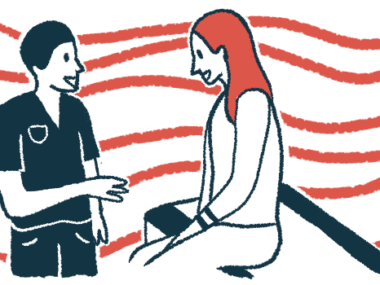The importance of paying attention to meningitis risk factors
I follow my doctor's advice about getting the meningitis vaccine
Written by |

Fear is something I surprisingly don’t experience much when it comes to living with paroxysmal nocturnal hemoglobinuria (PNH). After I’ve been through multiple battles and come out with victories on the other side, the fear of medical unknowns diminishes.
Some of my battles have included a blood transfusion, a bone marrow biopsy, and a surgery to remove my gallbladder. My battle wounds are my most prized possessions. Nevertheless, despite my progress, a few things have prompted some feelings of fear.
When beginning treatment with Soliris (eculizumab), I was given extensive information about the threat of meningitis. According to the drug’s manufacturer, Alexion Pharmaceuticals, a patient being treated with this medication is highly susceptible to meningitis. I was given pamphlets, patient safety cards, and instructions from my doctor about what to do if I showed symptoms of this dangerous condition. Meningitis has become my real-life bogeyman.
In response, I’ve gotten meningococcal vaccines like one would use garlic to fight off Dracula. I take penicillin daily as a preventive measure, like people used wolfsbane to protect against werewolves.
Time to get vaccinated
The experiences I’ve had explaining to others why I’m prescribed an antibiotic every day have been interesting. My local pharmacists, for example, ask if I should be taking certain medications simultaneously. I let them know that my doctor is aware of the situation and that I’m being treated carefully.
People sometimes share about their own experiences with antibiotics, and how they dislike them, to which I explain that I don’t have a choice about taking them. I don’t like being on medications every day, but I’m happy to know that I’m protected.
I try to control what I can in hopes of never getting this bacterial infection. But I also understand that it’s always a possibility. It’s been five years since I had my last meningitis vaccine, so I’m due for it again. My hematologist and primary care doctors don’t offer it, so I’ll have to find a pharmacy that does.
As I plan when and where to get it, I notice fear nagging at me, because I’m nervous about having a possible reaction to it. Since my PNH diagnosis, I’ve had a few vaccines, such as for the flu, and I haven’t had any issues. I did, however, have an adverse reaction to the COVID-19 vaccine. The first night, I spiked a fever, had full-body chills, and was shaking. That experience makes me wonder if I’ll also have a reaction to the meningitis vaccine. My doctor doesn’t seem too worried about it, but I certainly plan to get plenty of rest afterward.
When I have fears related to my health, the first thing I do is speak with my doctor. Then I reach out to the PNH community. I try to control what I can and hope I can fight whatever comes my way.
To other PNH patients, this is your friendly reminder to check your meningitis vaccine schedule and make sure you are up to date and taking the necessary precautions. Always follow the advice of your doctors.
Note: PNH News is strictly a news and information website about the disease. It does not provide medical advice, diagnosis, or treatment. This content is not intended to be a substitute for professional medical advice, diagnosis, or treatment. Always seek the advice of your physician or other qualified health provider with any questions you may have regarding a medical condition. Never disregard professional medical advice or delay in seeking it because of something you have read on this website. The opinions expressed in this column are not those of PNH News or its parent company, Bionews, and are intended to spark discussion about issues pertaining to paroxysmal nocturnal hemoglobinuria.






